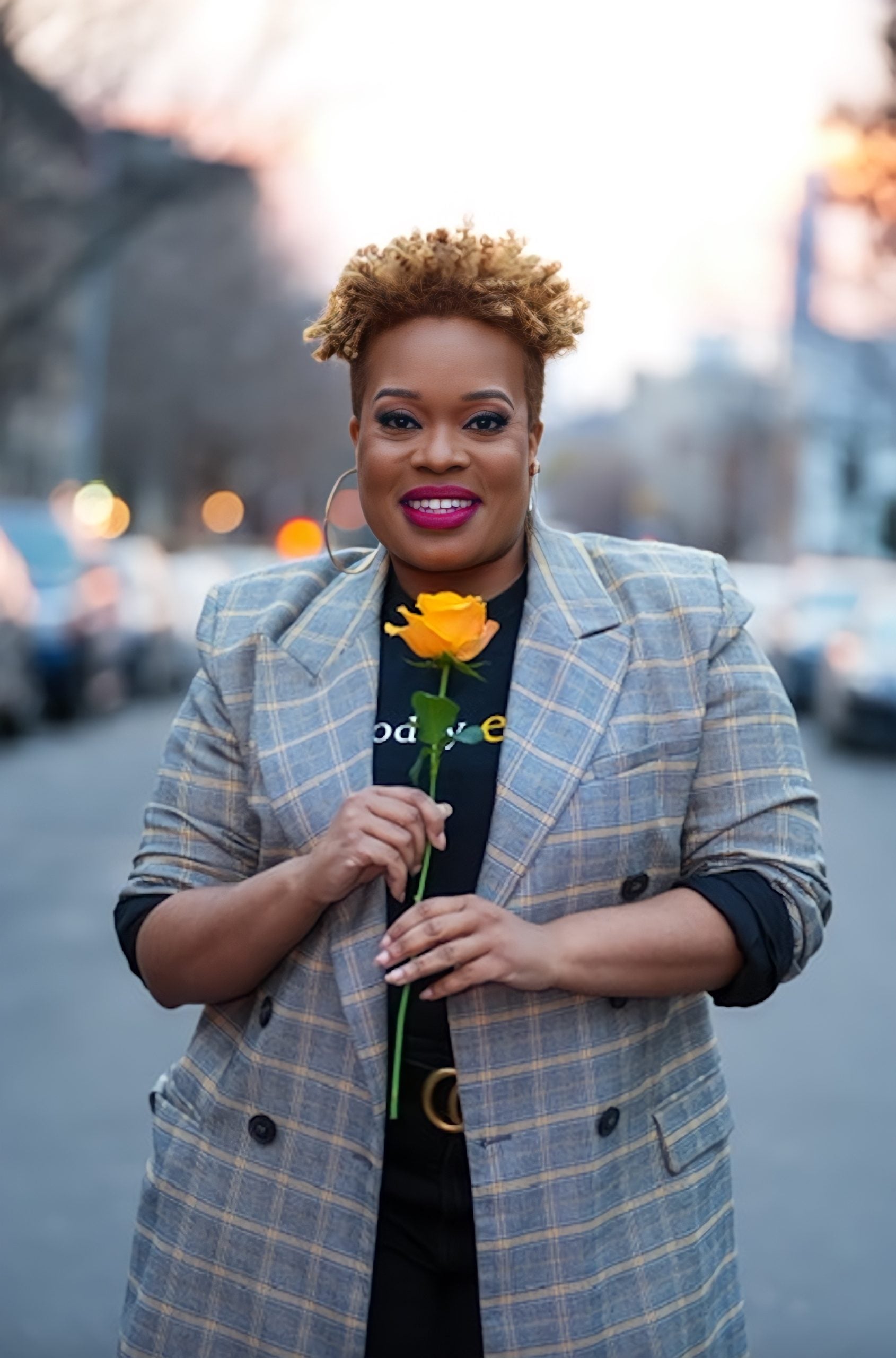
After being diagnosed with stage four endometriosis and infertility, and experiencing a failed in vitro fertilization cycle, April Christina has remained hopeful about giving birth.
“When I think of how amazing life is and how beautiful this journey has been for me and how I’ve grown and evolved, I have no choice but to see the other side of it,” the health and wellness influencer says to ESSENCE.
Christina documents her journey on social media—and many relate. She has shared that she has a low anti-müllerian hormone (AMH) level. This means the number of follicles she should have for a woman in her mid-thirties is less than what’s needed to conceive. So, her doctor recommended fertility treatments. After much research and consideration, she took the in-vitro fertilization (IVF) route.
“Your pace, your race. That for me is something that is pivotal in every single aspect of my life.”
IVF consists of a patient going through a simulation that closely monitors the woman’s follicle levels. When the fertility specialist believes the follicles have reached a specific size, the patient starts the second part of the treatment, called retrieval. The specialist retrieves eggs and then takes sperm to make embryos. After embryos are tested, the doctor determines they can successfully be used. If they can, they are then transferred into the person.
Unfortunately, Christina went through this cycle and did not receive the desired results. Yet, she held onto hope. “Your pace, your race. That for me is something that is pivotal in every single aspect of my life,” she says.
Her positivity has encouraged others.
“Thank you for speaking out loud. I’ve been trying to find the courage and hope to very soon,” one comment under an Instagram post of hers says. The video showed Christina in conversation with model Chrissy Teigen, who has also been vocal about her fertility struggles.
Christina is embracing the ups and downs of the journey. She encourages people on a similar path to be “open and receptive to sharing your story—whatever your story looks like.” Her vulnerability is destigmatizing fertility difficulties and what it means to have endometriosis; medical issues that are not uncommon, especially among Black women.
According to the CDC, infertility is defined as not being able to become pregnant after one year (or longer) of unprotected sex. Among women aged 15 to 49 years with no prior births, about 1 in 5 (19%) cannot get pregnant after one year of trying.
Data also suggests that Black women “may be twice as likely as white women to have fertility problems but are far less likely to seek or receive infertility treatment.”
The studies play a role in why Christina is so vocal. She also wants everyone with similar struggles to know about the resources available. She endorses Fertility Outreach, a text-based platform that allows women to speak with a fertility coach in real time. They support users throughout their fertility treatments and overall life. The coaches recognize the women as much more than their bodies. They encourage them to be the best version of themselves.
“I focused so much on fertility that I lost the aspect of everything else that I was.”

“I focused so much on fertility that I lost the aspect of everything else that I was. My coach reminded me that those things were still me. That’s the amazing thing of having someone like a fertility coach,” Christina says.
Early on, Christina recognized she needed a strong support system. Fertility Outreach provided one. “I have an all-star team,” she says. She’s leaning on them as she enters her second IVF treatment cycle in December after taking a year off.
“Within that break I had growth,” she tells us. “I loved on myself more. I lost weight without even trying to lose weight. I think that taking a moment of stillness for myself was the best thing I could’ve done. I didn’t realize how much I was on the go I was. I so focused on mommy that I forgot to focus on April.”
She’s trusts that this year of growth will prepare her for motherhood. As she holds onto faith, she’s embracing the present, too.
“Never rush or propel the process,” she says.